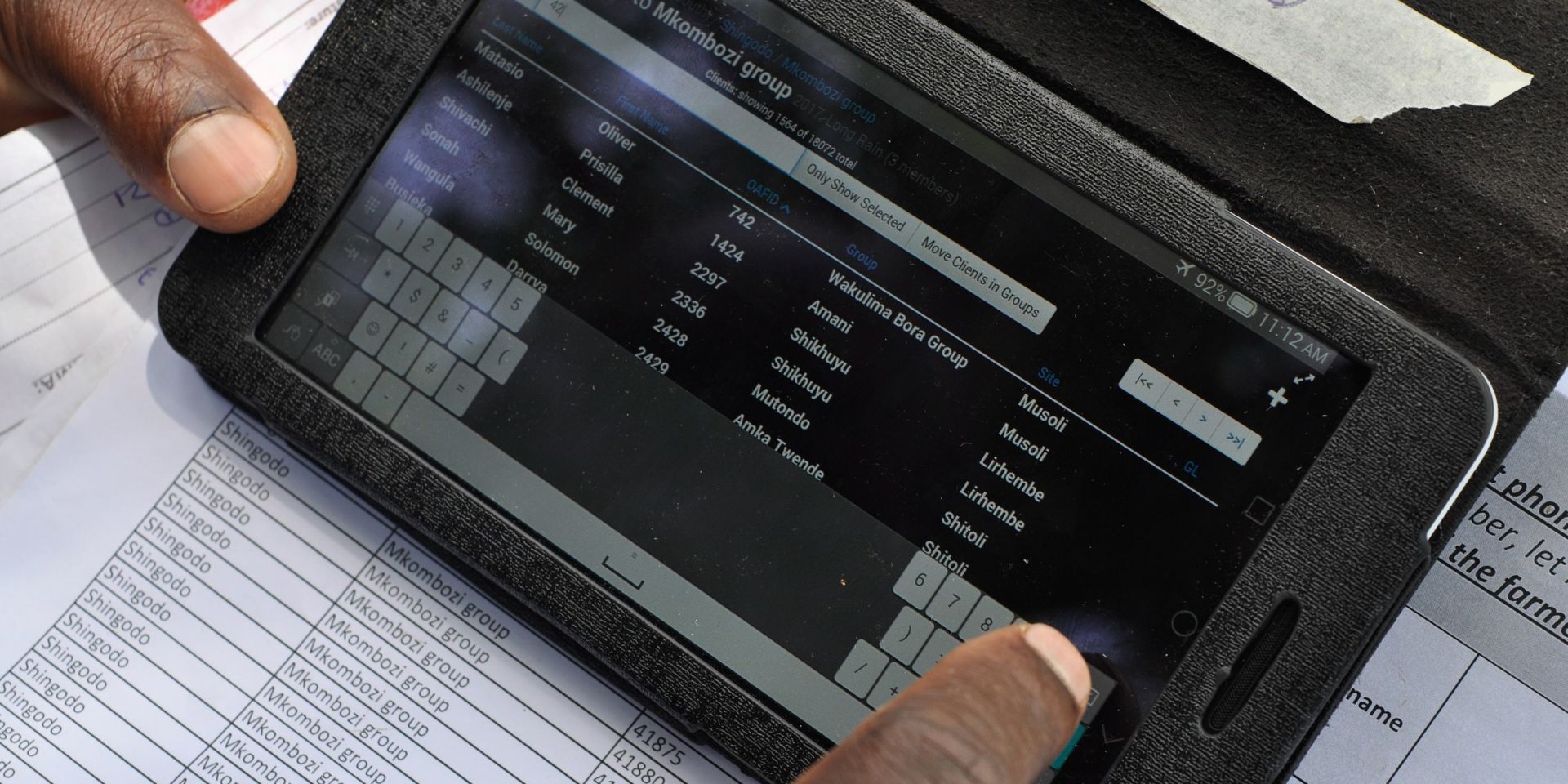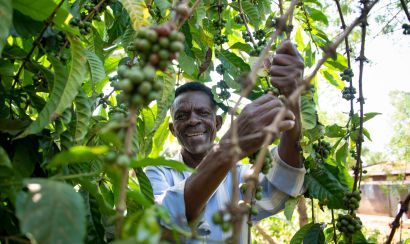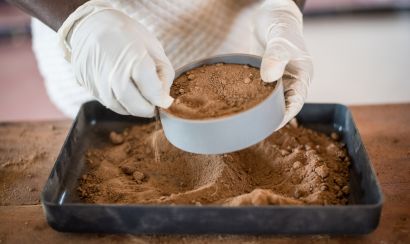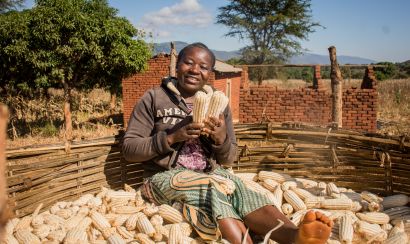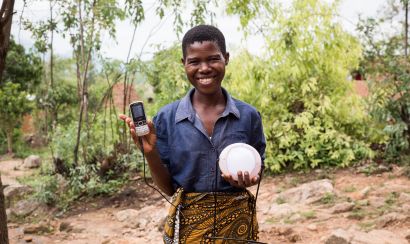Using Technology to Support Farming in the Face of COVID-19
Hello, not from the farm, but from home! We hope that everyone is still keeping indoors, healthy, and with clean hands.
Today, terms like physical distancing, lockdowns, and containment are more than just buzzwords. They represent a new, harsh reality for how we operate at scale because they present many new limitations—including restrictions on movement, group gatherings, and paper passing; all of which were key to our operations just three months ago. As we innovate to meet these new challenges, technology has come to the fore.
Going Directly to Farmers
One of the keys to generating impact is ensuring our programs are able to reach many farmers through each field officer for our model to work at scale. Previously, our 4,800 field officers served more than one million farmers through weekly meetings, in which roughly 40 or so farmers would congregate and could order farm supplies, participate in weekly farming trainings, and give cash to the field officers to repay their loans. In many of the countries where we work, safety precautions mean group and cluster meetings are no longer allowed, so we must find a new approach.
Thankfully, there have been technological advances that enable us to think of new methods of delivering these trainings and services directly to those we are trying to reach. The explosive growth in mobile phone ownership and connectivity, in recent years throughout East Africa, luckily has allowed our Tech and IT teams to rethink how we access so many farmers. To do it, we’re rapidly shifting many of our interactions to operate directly through the farmer.
- Farmer Self-Service: We’re stepping up the use of USSD (a short code service that’s available on basic mobile phones), which our existing customers already use to get service straight from their phones. One Acre Fund farmers can already use USSD to connect with a field officer in their area, register a product (like a solar light), or access their account balance. In Kenya, Rwanda, Uganda, and Malawi our customers are all currently able to make payments using various mobile money platforms, avoiding the unnecessary exchange of physical currency.
In the coming weeks, we’re rolling out new features for new and existing customers. More farmers will be able to enroll with One Acre Fund and order inputs for rural delivery directly through USSD. In Rwanda, 45% of clients who signed up for this season enrolled via USSD, which removed the need for personal interaction and paper contracts. We’re rapidly scaling this up in all our countries of operation so farmers have safe access to inputs. Plans are also in place to fully roll out mobile repayment options for our clients in Tanzania and Zambia later in the year.
- Training and Knowledge Sharing: In Kenya and Rwanda, we will soon be launching a self-training USSD interface through which farmers can access numerous planting guides, with information such as when to weed their farms, what spacing to leave between planting rows, etc. We’ll also soon begin using USSD and short messaging (SMS) to share information on the coronavirus, its spread, containment, and preventive measures with our clients.
- Faster Switch to Mobile Money: While we were already on a path of digital transformation with fully cashless operations in Kenya, Rwanda, Uganda, and Malawi, this has led us to re-prioritize speeding up paperless repayment everywhere we operate. We’re on track to roll out mobile money to our clients in Tanzania by June, and we’re trialling the program in Burundi and Zambia.
Keeping Staff Safe and Connected
While the “work from home” effects of COVID-19 have been dominating the discussion of many countries’ office-based working population, the concept of working from home for rural field workers, like our field staff, introduces a whole new dimension. Our Tech and IT teams have been tasked with envisioning how to carry out our essential work with an army of staff equipped only with basic phones (think of your auntie’s Nokia), sometimes tablets, and limited access to cell signal and data.
- Field Support “Work from Home”: In a matter of days, we had to change the way we work. We closed our offices, we could no longer have our trademark Monday meetings (weekly group sessions which were used to train field staff), and we needed to find new ways for field managers to stay in touch with their teams without being physically with them.
Within 72 hours of the first confirmed report of COVID-19 in Rwanda, we had distributed more than 700 smartphones to our field teams there. These phones, as well as the tablets in Kenya and Tanzania, were configured with the productivity tools field officers needed to be fully functional remotely. These include G-Suite applications such as Hangouts for team meetings, and Classroom for training sessions.
While we’re minimizing touch points as much as we can and have cancelled all group meetings, some aspects of farmer support still require some one-on-one (though appropriately distanced!) interaction. This is how we’re using technology to make these interactions safer:
- Tablets > Paper: Using the thousands of tablets we had recently equipped our field staff with, those teams have been able to continue providing crucial support to our clients safely. Tablets have enabled those teams to access real-time data on the farmers that we serve. They also allow those who are essential in the field to rely on digital transactions and training tools to minimize paper passing, and so staff can remain 2 meters away from farmers when they meet. Following the onset of COVID-19, other country operations, like Uganda and Tanzania, are now scheduled to make the full switch to tablets by June.
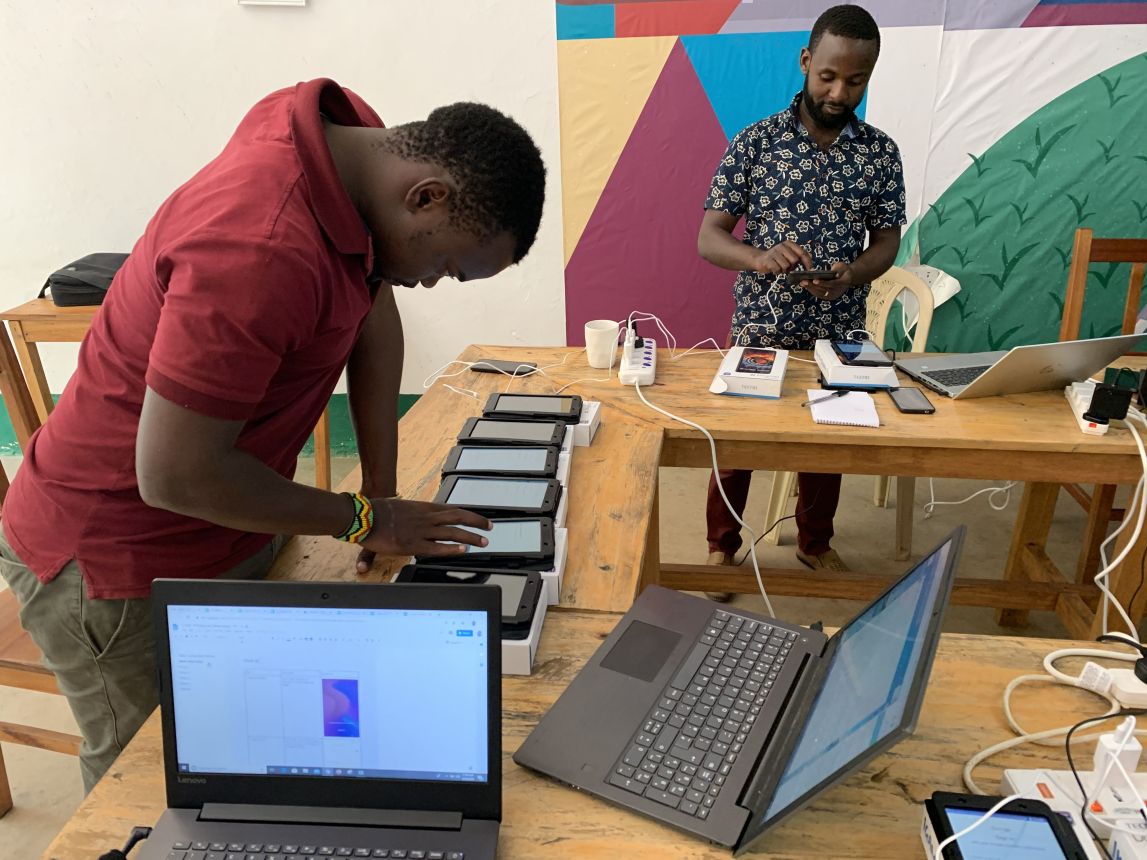
For food production to continue, despite the interruptions caused by COVID-19, supporting our clients and field teams through technology is critical. With the right tech at hand, smallholder farmers can access the crucial information they need to make their farms productive and our staff can operate safely, even in a low tech environment.
